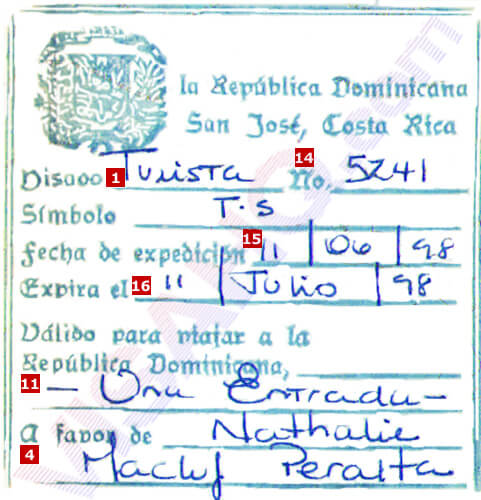Dominican Republic Embassy list in Philippines
Need help?Chat with us
Why Trip Registration at the Dominican Republic Embassy is Important
Registering your trip with the Dominican Republic embassy is crucial for ensuring your safety while abroad. In emergencies such as natural disasters like hurricanes or earthquakes, having your trip registered allows the embassy to quickly identify your whereabouts, ensuring you receive timely assistance. In cases of political unrest, embassy registration can facilitate communication, providing you with critical updates on safety measures or evacuation procedures. Moreover, if you face a medical emergency, the embassy can provide vital support and connect you with local healthcare services. Being prepared can make a significant difference in uncertain situations, ensuring you are not alone during challenging times. Registration thus acts as a lifeline, enhancing your security and peace of mind as you explore the beautiful Dominican Republic.
Dominican Republic Embassy FAQs
Can the Dominican Republic embassy assist in legal issues abroad? Yes, the Dominican Republic embassy can provide guidance and support related to legal issues, including connecting you with local legal services and advising on your rights.
What should I do if I lose my Dominican Republic passport in the Philippines? If you lose your Dominican Republic passport in the Philippines, report the loss to local authorities and then contact the embassy for assistance in obtaining a replacement passport.
Are there specific document requirements for legal assistance from the embassy? Yes, the embassy may require documentation related to your legal issue. It’s best to contact them directly for details on the specific documents needed.
Does the embassy provide help for nationals who face distress abroad? Yes, the embassy offers support to nationals in distress by providing resources and assistance in returning home or connecting with local services.
Can the embassy help with voting while abroad? Yes, the Dominican Republic embassy can provide information on how to vote while abroad, including absentee ballot processes and deadlines.
Services Provided by Dominican Republic Embassies in Philippines
Passport Services
- Issuance of passports
- Renewal of passports
- Lost passport replacement
Visa Issuance for Foreign Nationals
- Processing visa applications for foreign nationals visiting the Dominican Republic
Assistance in Legal or Medical Emergencies
- Guidance in legal matters and access to local legal professionals
- Support in medical emergencies and connection to healthcare services
Travel Alerts and Safety Updates
- Providing updates on travel advisories and safety information for Dominican nationals abroad
Support for Nationals Detained Abroad
- Assistance to nationals facing detention, including access to legal resources and communication with family members.
Summarized Diplomatic Presence
The Dominican Republic maintains a diplomatic presence in the Philippines through its embassy, which is strategically located in Manila. The embassy’s primary functions include promoting bilateral relations, providing consular services, and supporting Dominican nationals living or traveling in the Philippines. This diplomatic representation plays a significant role in fostering international relations, enhancing trade, cultural exchange, and cooperation between the two nations. Through its services, the embassy not only addresses the needs of its citizens but also works to strengthen the ties that bind the Dominican Republic and the Philippines.
